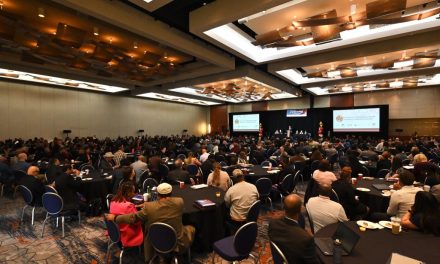This is an opinion column.
I’m a competitive person. I hate getting beaten to a story. So I took little pleasure three years ago when the Washington Post’s Radley Balko unearthed a remarkable one right in my backyard — a death penalty case in which the defendant, a man named Toforest Johnson, couldn’t have committed the crime.
Oh, well, I thought. Good for them. I was glad someone told the story, although I was jealous, and it was compelling enough, surely Johnson would soon be free.
But a year and a half later, Johnson was still on death row.
That’s when more people, including former judges and prosecutors, came forward to say Johnson deserved justice.
One was Drayton Nabers, the former chief justice of the Alabama Supreme Court.
Another was Danny Carr, the newly elected Jefferson County District Attorney, who said his office no longer had confidence in Johnson’s conviction.
And yet another was Bill Baxley, the former Alabama attorney general.
“As a lifelong defender of the death penalty, I do not lightly say what follows: An innocent man is trapped on Alabama’s death row,” Baxley wrote in a Washington Post op-ed.
Even then, I thought, it was only a matter of time before some official would step in and justice would prevail.
That was a year ago.
Nothing has happened. Johnson is still behind bars awaiting execution.
And our state’s most senior public officials seem fine with that.
Looking for a cop-killer
If you hadn’t yet heard of Johnson’s case. Here’s the background.
In 1995, an off-duty Jefferson County sheriff’s deputy, William Hardy, was murdered while working security at a downtown Birmingham motel. Investigators struggled to come up with a suspect. Before it was over, they would arrest five men for murdering Hardy, even though the ballistics showed only one gun was used to commit the crime.
After arresting three suspects and then letting them go, prosecutors honed in on the two they had left, Johnson and a man named Adragus Ford.
Both had alibi witnesses putting them in another part of town at the time of the murder. But police had a teenager, Yolanda Chambers, who identified Ford (not Johnson) as the shooter — but only after she first had named three other men as the shooter.
Prosecutors decided to charge both Johnson and Ford with the murder.
And this is the bonkers thing about this prosecution: They didn’t argue that Johnson and Ford had committed the murder together. Rather, they charged and tried them apart from each other.
Two defendants. Two different theories of the case. One crime.
Prosecutors went into one courtroom and argued that Ford pulled the trigger, not Johnson. And after they got a mistrial, they then went into another courtroom and argued that Johnson had been the killer, not Ford.
And they repeated this process until they got a conviction.
They told jurors they had proof beyond a reasonable doubt that (insert defendant’s name here) had done it, even though they themselves could not decide.
It gets worse.
In one trial, prosecutors told jurors that — even though Chambers had changed her story and named three other people before she named Ford — she was a credible witness now and jurors could believe her.
But when Johnson’s attorney called Chambers as a defense witness in his case, those exact same prosecutors told the jurors that Chambers was a liar.
The truth seems to be that Chambers couldn’t have witnessed either one of the defendants killing Hardy. Phone records and other witnesses put her elsewhere that night. Instead, she was bullied by investigators into lying, defense lawyers have argued.
And it still gets worse.
The thing that persuaded jurors of Johnson’s guilt was another witness, Violett Ellison, who came forward after the governor’s office offered a reward in the case.
Ellison’s daughter had been dating a man who was in jail. In a scheme to get out of jailhouse phone charges, the daughter would use three-way calling to connect her boyfriend and others with people on the outside they wanted to call, thus allowing them to pay for one call instead of several.
Ellison testified that she had eavesdropped on one of these phone calls. She said she heard a man calling himself Toforrest say he’d shot someone in the head. That was the single thread of evidence prosecutors had — enough, they argued, to put Johnson to death.
A jury agreed.
Mistakes, misgivings and regrets
What the jurors and Johnson’s attorney didn’t know was that Ellison would get the reward. She was being paid to testify.
Three jurors from that trial have since come forward to say they wouldn’t have convicted Johnson had they known about the reward. They now believe they may have convicted an innocent man.
“This is supposed to be an honest system. It’s supposed to work, and they misled us,” juror Jay Crane told WBRC. ” I am very disappointed. And I feel sad for the victim’s family because they haven’t gotten any justice.”
“They don’t have the right person in prison,” he said.
Even the lead prosecutor, Jeff Wallace, has misgivings about the case. During appeals, he testified that the case was thin.
Meanwhile, Johnson’s defense now has 10 witnesses who put him and Ford in a different part of town at the time of the murder.
And Ford himself, who died last year, might have been the most important witness of all. Ahead of their trials, prosecutors offered Ford immunity if he would finger Johnson as the killer. Ford refused, saying he wouldn’t lie, even if it would set him free. Instead, he stood trial and won an acquittal.
To the end, Ford said they both were innocent.
As bizarre as Johnson’s case is, it’s not a unique or unusual failure of the system. There have been others. Under former Jefferson County District Attorney David Barber, prosecutors won convictions and death sentences against four defendants who were later exonerated, the most well-known being Anthony Ray Hinton.
But what sets Johnson’s case apart from the others is that, in those cases, prosecutors were overconfident in erroneous theories. In Johnson’s case, they didn’t have enough confidence to settle on one person or one theory. They threw what they had at the wall to see what would stick.
This is injustice. And if something doesn’t change, it could one day be a state-sanctioned murder of an innocent man.
And what should scare the hell out of everybody is that Alabama’s most senior public officials seem OK with that.
As I said up top, none of this is new information.
Alabama Attorney General Steve Marshall knows all of this.
As does Gov. Kay Ivey.
Marshall tomorrow could pull the plug on the state’s case against Johnson, which is now before the Court of Criminal Appeals.
He hasn’t.
Ivey could grant Johnson a pardon.
She hasn’t.
They seem set on killing an innocent man, because doing anything less might make someone think they’re soft on crime.
But if they leave an innocent person behind bars, that doesn’t mean they believe in the death penalty. Just politics.
Even if one or the other of them is waiting until after the election this year to set Johnson free, leaving an innocent man in jail but one day is still wrong.
Pardoning someone is not merely a power the governor has to use at her discretion. When the facts show an innocent man is behind bars and at risk of execution, it is her duty.
The time for them to act is now.










